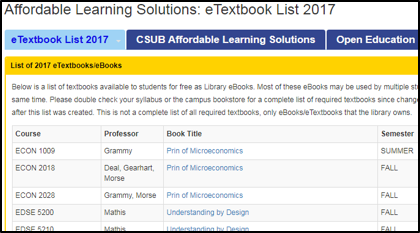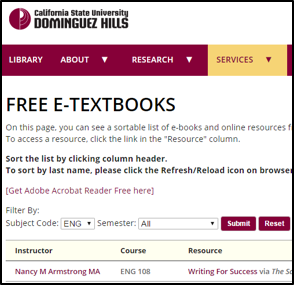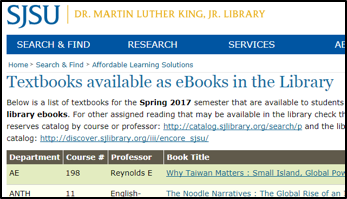Did You Know?
Your CSU library has a wealth of free resources and expertise available to both you and your students.
- Your campus library can provide access to the highest quality digital textbooks, online scholarly journal articles, streaming audio and video, and other materials for instructional uses -- all at no cost to your students.
- Your library’s collection of electronic books and journal articles can be especially useful in upper division classes where free or low cost textbooks that align with the more specialized curriculum are often scarce.



